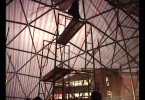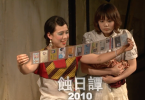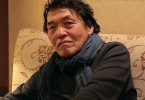櫻井大造和他的帳棚劇
櫻井大造在第二次反安保條約運動期間進入日本早稻田大學政治經濟系學習。在學生運動熱情愈發高漲之時,他加入了移動雜技劇場,成為了第二代帳篷劇社的一員。與此時學生運動日漸激化相呼應,移動雜技劇場作為第二代帳篷劇社的典型代表,其成員往往以對第一代帳篷劇社進行反省和批判作為出發點,以苦行的姿態進行戲劇表演。
櫻井大造的帳篷劇場根植於社會運動,卻並沒有簡單地因為社會運動的落幕而融入主流社會。當然,它也沒有如社會運動所期許的成功地顛覆資本主義。更重要的是,在經歷了浪漫化的社會運動和暴力革命後,他的帳篷劇場並沒有淪為資本主義生產格局中的一種美學態度,保持了帳篷劇場最基進的顛覆性。這樣說的原因是,在資本主義生產體系下,櫻井大造並沒有放棄對戲劇體系發起最有力的挑戰:首先,在經濟上帳篷劇場已經擺脫了現代意義上劇場運作對政府資金、非政府組織及企業贊助的依賴;其次,帳篷劇場將活動保留在了社會底層,既打破了劇場與非劇場的界限,也結合了底層人民的期望。這兩點,缺一不可,都讓櫻井大造的創作歷程保持著某種持續性的反抗力量。
不管以什麼樣的方式,如完全不依賴資本主義的文化策略,櫻井一直在嘗試著向劇院體系的經濟基礎發起挑戰。也正是這種經濟獨立性,讓帳篷劇場能一直堅強地行走在社會底端。
Daizo Sakurai and His Tent Theatre
Daizo Sakurai entered Waseda University of Japan and studied at Department of Political Economics during the Second Anti-Security Treaty Movement. In the upsurge of the student movement, Sakurai joint Theater of traveling Acrobats and became a member of the second-generation tent theatre. Theater of traveling Acrobats is representative of the second-generation tent theatres, whose members dramatically criticized the first-generation tent theatres and made theatrical performances in an ascetical gesture of “disintegrating theatres”.
Sakurai’s tent theatre, stemmed from social movements, has not been simply integrated into the mainstream of society with the falling tide of social movements; surely, it also cannot subvert capitalist system as the social movements have expected. However, what is important, having gone through romantic movements and violent revolutions, Sukurai’s tent theatre has not simply descended into an aesthetic manner in the overall pattern of capitalist production, and maintained the most fundamental subversiveness of the tent theatre. The reason of the above saying is that Sakurai has continued the most powerful challenge of tent theatre to the drama system under the capitalist production system: first, on the economic basis, tent theatres have gone beyond the modern manner of theatre production that depends on government fundings, NGO supports and enterprise investments; second, they have preserved in activities at the bottom of the society, broken the boundaries of theatres and non-theatres, and integrated theatres with desires of the bottom. Both points, one relying on the other, make Sakurai’s journey and creation maintain living resistant powers.
No matter what manner he has utilized, Sakurai has been challenging the toughest economic foundation in the theatre system, i.e. being completely independent from capitalist cultural strategies. It is with this economic independence that the tent theatre can independently walk at the bottom of the society.

-1-380x260.jpeg)
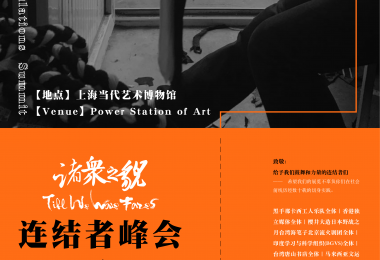
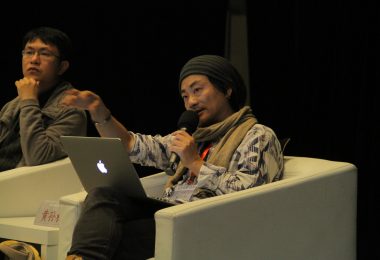
-1-145x100.jpeg)
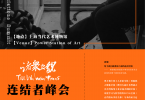




帳篷活動記錄-145x100.jpeg)

